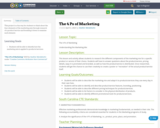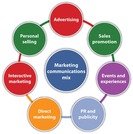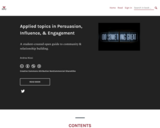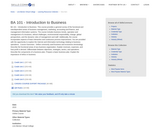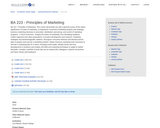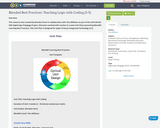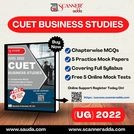Next generation sensors and a potential new ecosystem for marketing and advertising in augmented and virtual reality
Short Description:
Marketing is a competitive field that demands continuous improvement in the delivery of persuasive messaging to target audiences. The most recent successes in finding competitive advantage is achieved by professional marketers through technology. In this report, we will consider how Virtual Reality and Augmented Reality (AR/VR) will impact the marketing profession. We will review our research into the background of AR/VR, the sensor technologies that enable these advances, a review of the available hardware types, their positioning in the marketplace, and their use cases. We will then review current best practices in digital marketing as shared by key presenters at the 2017 University of New Hampshire Digital Marketing Conference. This will be the basis of a discussion about how AR/VR might embrace these current practices, cannibalize them, or depart from them to establish completely new methods. The new ecosystem driven by advances in VR and AR technology make a powerful new tool available to engage with their audiences at a new intense emotional and psychological level. We will discuss AR/VR’s evolving uses in entertainment, therapy, training and pornography. A review of risks is included. We conclude with analysis and projections for future use cases in social media, business practices, education, and for opportunities that may accrue to marketers because of AR/VR.
Long Description:
It’s 2017 and we stand upon the brink of another evolution in digital media. Since the first Turing architecture machine was invented to break codes in WWII, the ongoing technology evolution has led to a state of nearly ubiquitous computing, most recognizable in the form of modern smart phones. Stemming from the concurrent development in computing hardware and information processing, governments, businesses, and individuals created new marketplaces. These technologies established the ecosystem for the Internet and World Wide Web. Marketers and traditional marketing models adapted quickly to this ecosystem to the extent that digital marketing now dominates a typical marketing mix.
New technology innovations, known as Virtual Reality (VR) and Augmented Reality (AR), are developing at a rapid pace. The unique properties of fully immersive VR and situationally aware AR have great potential value to marketers seeking to engage and persuade consumers with impactful messaging. Marketers are starting to work with VR and AR as part of their toolbox for messaging. Its potential impact on existing marketing practices may turn out to be similar to what we have seen in the transition to digital marketing. In this report, we will describe AR/VR hardware technology and how it may enable new ecosystems to develop for marketing and advertising.
Word Count: 21293
(Note: This resource's metadata has been created automatically as part of a bulk import process by reformatting and/or combining the information that the author initially provided. As a result, there may be errors in formatting.)
